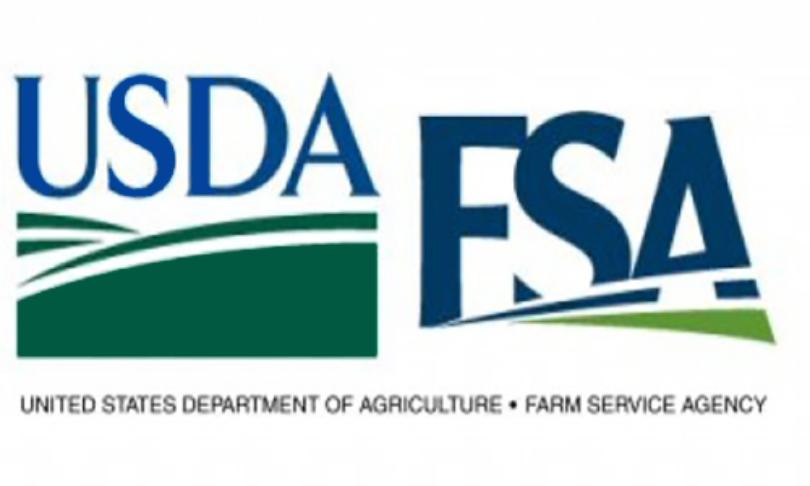
Signup for the Conservation Reserve Program began Dec. 9, 2019. The deadline for agricultural producers to sign up for general CRP is Feb. 28, 2020, and signup for continuous CRP is ongoing.
Farmers and ranchers who enroll in CRP receive a yearly rental payment for voluntarily establishing long-term, resource-conserving plant species, such as approved grasses or trees (known as “covers”) to control soil erosion, improve water quality and develop wildlife habitat on marginally productive agricultural lands.
CRP has 22 million acres enrolled, but the 2018 Farm Bill lifted the cap to 27 million acres. This means farmers and ranchers have a chance to enroll in CRP for the first time or continue their participation for another term.
By enrolling in CRP, producers are improving water quality, reducing soil erosion, and restoring habitat for wildlife. This in turn spurs hunting, fishing, recreation, tourism, and other economic development across rural America.
CRP Enrollment Options
General Signup
CRP general signup will be held annually. The competitive general signup will now include increased opportunities for enrollment of wildlife habitat through the State Acres For Wildlife Enhancement initiative.
Continuous Signup
While some practices under SAFE will remain available through continuous signup, CRP continuous signup will focus primarily on water quality with the Clean Lakes, Estuaries, and Rivers Initiative. The 2018 Farm Bill prioritizes water quality practices such as contour grass strips, filter strips, riparian buffers, wetlands and a new prairie strip.
USDA will also be working with Conservation Reserve Enhancement Program (CREP) partners to relaunch CREP continuous options in each state under new statutory provisions. CREP will continue to target high-priority local, state or regional conservation concerns.
Grasslands Signups
CRP Grasslands signup helps landowners and operators protect grassland, including rangeland, and pastureland and certain other lands while maintaining the areas as grazing lands. A separate CRP Grasslands signup will be offered each year following general signup.
Pilot Programs
Later in 2020, (FSA will roll out pilot programs within CRP: CLEAR 30, which allows contracts expiring with CLEAR practices to be reenrolled in 30-year contracts and in the Soil Health and Income Protection Program (SHIPP) in the prairie pothole region. More information on these programs will be announced in the new year.
Land Transition
The CRP Transition Incentives Program (TIP) is an option for producers interested in transitioning land to a beginning farmer or rancher or a member of a socially disadvantaged group to return land to production for sustainable grazing or crop production. CRP contract holders no longer need to be a retired or retiring owner or operator to transition their land. TIP participants may have a lease less than five years with an option to purchase, and they have two years before the end of the CRP contract to make conservation and land improvements.
Previously Expired Land
Land enrolled in CRP under a 15-year contract that expired in September 2017, 2018 or 2019, may be eligible for enrollment if there was no opportunity for re-enrollment and the practice under the expired contract has been maintained.
CRP Rates and Payments
FSA recently posted updated soil rental rates for CRP. County average rates are posted on the CRP Statistics webpage. Soil rental rates are statutorily prorated at 90 percent for continuous signup and 85 percent for general signup. The rental rates will be assessed annually. Under continuous signup, producers also receive incentives, including a signup incentive payment and a practice incentive payment.
To enroll in CRP, contact your local FSA county office or visit fsa.usda.gov/crp. To locate your local FSA office, visit farmers.gov/service-locator.
Higher Limits Now Available on USDA Farm Loans
Higher limits are now available for borrowers interested in USDA’s farm loans, which help agricultural producers purchase farms or cover operating expenses. The 2018 Farm Bill increased the amount that producers can borrow through direct and guaranteed loans available through USDA’s Farm Service Agency (FSA) and made changes to other loans, such as microloans and emergency loans.
Key changes include:
- The Direct Operating Loan limit increased from $300,000 to $400,000, and the Guaranteed Operating Loan limit increased from $ 1.429 million to $1.75 million. Operating loans help producers pay for normal operating expenses, including machinery and equipment, seed, livestock feed, and more.
- The Direct Farm Ownership Loan limit increased from $300,000 to $600,000, and the Guaranteed Farm Ownership Loan limit increased from $1.429 million to $1.75 million. Farm ownership loans help producers become owner-operators of family farms as well as improve and expand current operations.
- Producers can now receive both a $50,000 Farm Ownership Microloan and a $50,000 Operating Microloan. Previously, microloans were limited to a combined $50,000. Microloans provide flexible access to credit for small, beginning, niche, and non-traditional farm operations.
- Producers who previously received debt forgiveness as part of an approved FSA restructuring plan are now eligible to apply for emergency loans. Previously, these producers were ineligible.
- Beginning and socially disadvantaged producers can now receive up to a 95 percent guarantee against the loss of principal and interest on a loan, up from 90 percent.
About Farm Loans
Direct farm loans, which include microloans and emergency loans, are financed and serviced by FSA, while guaranteed farm loans are financed and serviced by commercial lenders. For guaranteed loans, FSA provides a guarantee against possible financial loss of principal and interest.
For more information on FSA farm loans, visit www.fsa.usda.gov or contact your local USDA service center.
Persons with disabilities who require accommodations to attend or participate in this meeting should contact Donna Purdy at 315-824-9076, extension 2 or Federal Relay Service at 1-800-877-8339.
USDA is an equal opportunity provider, employer and lender. To file a complaint of discrimination, write: USDA, Office of the Assistant Secretary for Civil Rights, Office of Adjudication, 1400 Independence Ave., SW, Washington, DC 20250-9410 or call (866) 632-9992 (Toll-free Customer Service), (800) 877-8339 (Local or Federal relay), (866) 377-8642 (Relay voice users).
